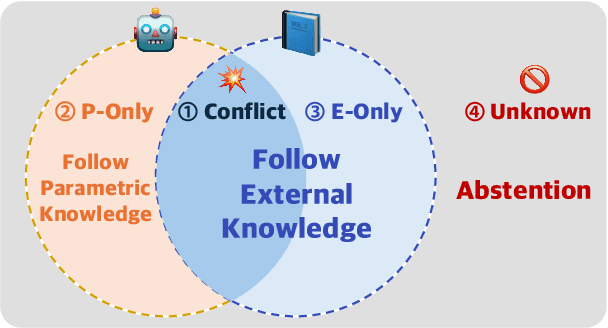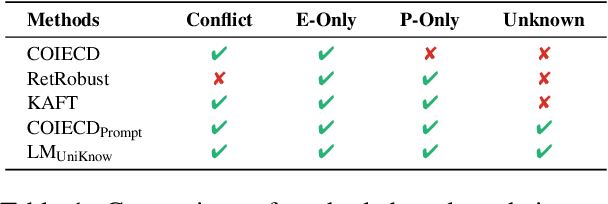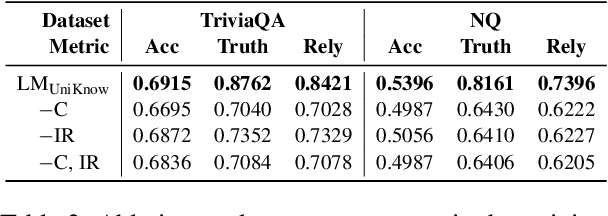Reliability Across Parametric and External Knowledge: Understanding Knowledge Handling in LLMs
Paper and Code
Feb 19, 2025



Large Language Models (LLMs) enhance their problem-solving capability by leveraging both parametric and external knowledge. Beyond leveraging external knowledge to improve response accuracy, they require key capabilities for reliable knowledge-handling: resolving conflicts between knowledge sources, avoiding distraction from uninformative external knowledge, and abstaining when sufficient knowledge is unavailable. Prior studies have examined these scenarios in isolation or with limited scope. To systematically evaluate these capabilities, we introduce a comprehensive framework for analyzing knowledge-handling based on two key dimensions: the presence of parametric knowledge and the informativeness of external knowledge. Through analysis, we identify biases in knowledge utilization and examine how the ability to handle one scenario impacts performance in others. Furthermore, we demonstrate that training on data constructed based on the knowledge-handling scenarios improves LLMs' reliability in integrating and utilizing knowledge.
 Add to Chrome
Add to Chrome Add to Firefox
Add to Firefox Add to Edge
Add to Edge